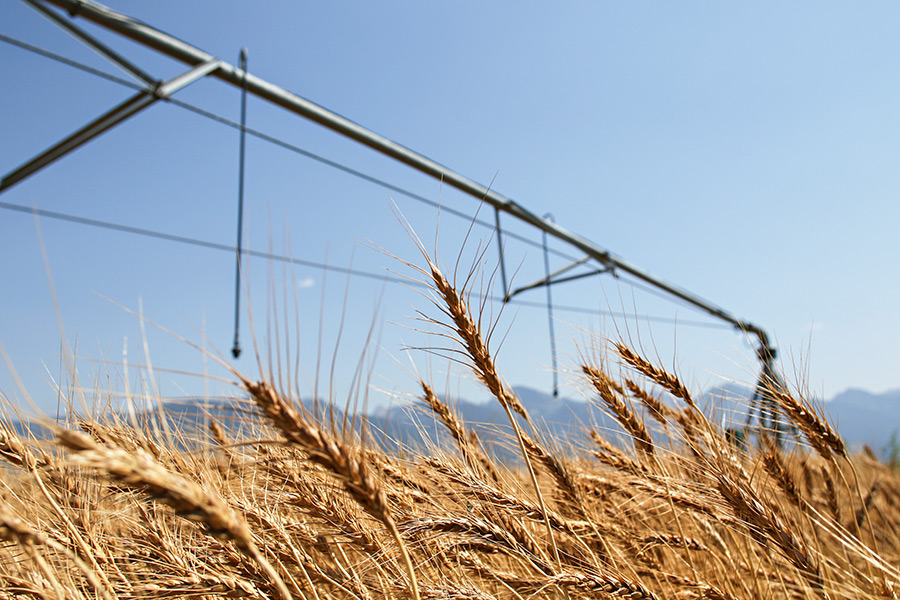The future of international trade agreements and tariffs continues to evolve as international trade heavy-hitters China and the United States continue to exchange blows over tariffs.
But while the details are still in flux, Montana’s congressional delegation is in general agreement that the trade wars could hurt agricultural producers the hardest and first.
“Whenever you get into trade wars, it’s always agriculture products that end up taking the brunt of it,” Montana U.S. Sen. Jon Tester, a Democrat, said last week. “There’s a level of uncertainty in the market, and markets don’t like uncertainty.”
Last week saw plenty of movement in the battle of the trade titans, with President Donald Trump proposing an additional $100 billion in tariffs on Chinese imports, on top of the $50 billion in tariffs he initially proposed. The 25 percent import taxes are supposed to penalize China for policies that put American products at a disadvantage in the Chinese marketplace.
China, for its part, has accused the United States of violating World Trade Organization regulations, and imposed tariffs on American imports. Fresh fruit, dried fruit and nut products were hit with a 15 percent tariff, while tariffs for pork products and scrap aluminum came in at 25 percent.
Montana Republican U.S. Sen. Steve Daines said there needs to be a level playing field with China, but it shouldn’t come at the expense of farmers and ranchers.
“I just returned from leading a congressional delegation with Senate colleagues to China where we raised concerns with Chinese officials about their country’s unfair trade practices,” Daines said. “We must take actions to level the playing field while also working to avoid or mitigate retaliation that would harm Montana’s farmers, ranchers, manufacturers and families.”
According to the Montana Department of Agriculture, Montana’s pork production isn’t likely to take much of a hit, given that the state generally ranks in the middle of the pack in terms of U.S. production. There also isn’t much concern about too many producers being affected by cherry tariffs, though department spokesperson Andy Fjeseth said any kind of trading blows in this type of battle is cause for concern.
“When we get into these trade disputes, agriculture commodities are usually among the first casualties, and there are major concerns from the industry about these retaliatory actions and what could happen next,” Fjeseth said.
While most analysts say talks can resolve many of the trade issues, the short-term effects of such tariffs from China will be felt the most in rural, agriculture-rich states, places where Trump tended to do well in 2016.
During a press conference on April 9, Trump acknowledged that American farmers and ranchers would likely feel the effects of the trade dispute.
“If during the course of the negotiation they want to hit farmers because they think that hits me, I wouldn’t say it is nice. But I will tell you our farmers are great patriots, they understand that they’re doing this for their country and we’ll make it up to them,” Trump said.
Tester, also a farmer in Big Sandy, said agriculture is already a business built on slim margins, and these kinds of adjustments would put people out of business. He also said this latest dispute with China, plus the president’s decision to pull out of the Trans-Pacific Partnership and threats to leave the North American Free Trade Agreement, make the markets uneasy.
“The other thing is that if you look at what we should be doing, especially in a state like Montana, we should be looking at opening up markets, not closing markets,” Tester said. “Most people I talk to will say we need to get more manufacturing back in this country, but I simply don’t think you pull out of trade agreements as a way to get manufacturing back in this country.”
Montana Republican Congressman Greg Gianforte said his first concern is for the state’s agricultural businesses, given that it is the state’s number one industry.
“Nobody wins a trade war, and I oppose broad-based tariffs because I don’t think economically they help,” Gianforte said. “My primary concern is we need free and open access to international markets for agriculture.”
Gianforte said he supported Trump’s effort to try holding China accountable for “bad trade practices,” and that the current unrest is a consequence of a public trade negotiation.
“What we’re seeing is a public negotiation,” Gianforte said of China and the U.S. “They’re creating some volatility in the markets, and I look forward to the administration concluding these negotiations.”
